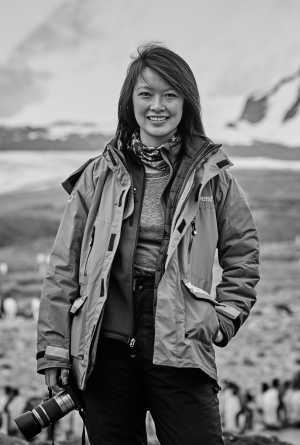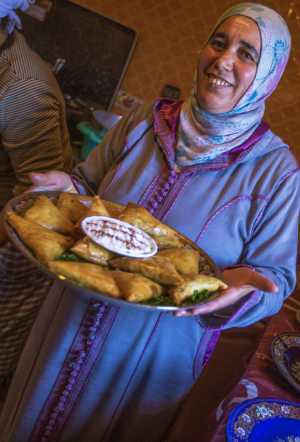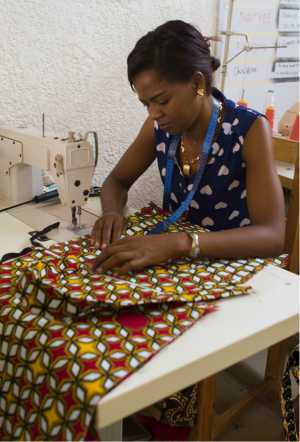Tell me about Planeterra and your role at the organization.
Established in 2003 by global adventure travel company G Adventures’ founder, Bruce Poon Tip, Planeterra was created as a means for the travel industry to give back to communities.
Planeterra is a non-profit organization that helps empower local people to develop their communities, conserve their cultures and create supportive systems for their endeavours.
I am the Director of Development at Planeterra, leading our fundraising and helping to build out Planeterra’s business development strategy globally.
As a not-for-profit, Planeterra raises funds to invest in our community development programs around the world. G Adventures backs Planeterra by covering all of Planeterra’s administration and operating costs, as well as providing Planeterra with a breadth of pro bono services. This allows us to invest 100 per cent of public, private and individual donations to our projects worldwide.
Women make up over half of the tourism workforce around the world. Why do you think so many women work in the tourism industry?
Tourism is an industry that has a low-barrier to entry, and employs more women and minority groups than any other industry. It’s one of few industries that is able to foster home-grown skills and convert these into formal livelihood opportunities.
In so many places in the world where women are marginalized and have less access to resources and education opportunities, women can still enter the tourism industry and have successful, sustainable career paths.
What are some of the challenges women working in tourism face?
Women around the world face many challenges and barriers, and the world has a long-way to go before we can truly be gender equal. Globally, women still only make 77 cents to the dollar for the same job a male counterpart would make.
How is tourism able to empower women and contribute to gender equality?
For one, it creates a platform for women to access education and training opportunities for those that may not have benefitted from a formal education growing up.
Tourism creates meaningful jobs and enhances income. Women earning an income have a greater agency and position to determine how it is spent, strengthening their decision making powers and building self-esteem.
Tourism also has a number of indirect benefits that contribute to gender equality. In many emerging economies, it’s often women that are in charge or acquiring their household’s water, fuel and food. When resources such as water tanks and electrical grids are installed to support tourists, it can also support local communities’ infrastructure.
What are some of Planeterra’s current women-focused projects?
Planeterra currently works with 13 women-empowerment partners directly, and also supports an additional 10 programs that are creating stronger female voices, livelihoods, and education and training opportunities for women.
Recently we launched a few new partnerships supporting women-run programs in Sri Lanka and Namibia.
In Kandy, Sri Lanka, we’ve partnered with the Women’s Development Centre, to renovate and expand a training café and craft shop that employs female entrepreneurs in the region. The proceeds from their co-developed lunch program with Planeterra, is anticipated to be visited by 3,000 G Adventures travellers this year alone. The proceeds from this meal service will support a shelter for abused women and other training and empowerment programs run by our partners.
Penduka, a women-owned and run social business in the Katutura Township outside of Windhoek, employs at-risk women mostly living in the surrounding townships with no schooling background and no access to secure jobs, or those suffering from chronic illness or disabilities. Along with direct employment, the handicraft cooperative also contracts the services of more than 300 women from around the country for handicraft creation. We partnered with Penduka to bring more customers to their restaurant, and are helping them develop take-out options for travellers leaving Windhoek on their way to nearby safari reserves.
How do you go about selecting communities for your initiatives?
In each community we work with, we ensure that a steady market-base of customers will be visiting this destination in the years to come. We’ve seen far too many well-intentioned organizations start a social business and fail due to a lack of customers.
We also focus our community business development model around products and services that are also in continuous demand in the tourism industry. These include community-owned and operated accommodation, training-restaurants and meals, handicrafts and souvenirs, community tours and community transport that is creating non-traditional livelihoods for women.
Each community we partner with, we ensure we have a well vetted local partner that is creating opportunities for women, at-risk youth, or rural and indigenous community groups. With almost two and a half years into the campaign, we’ve partnered, invested and integrated 25 new partnerships into tours that are supporting the livelihoods of over 1,500 women worldwide.
How can Canadians support women when travelling abroad?
Canadians can support women when travelling abroad by seeking out women-run and owned-businesses. Do your research ahead of time to see if there are social enterprises that are supporting female job-creation, or fostering support for families.
One of my favourite things to do prior to travelling is seeing if there are local women’s groups that are promoting female-led tours. When shopping or visiting a market, support enterprises and market stalls that are being run by a woman. Often-enough, supporting a female entrepreneur has the ripple effects of supporting her family’s needs as well.
Do you think the #MeToo movement has had a noticeable impact on women in tourism? In what ways?
Absolutely. Including and beyond the tourism industry, the #MeToo movement has created a supportive environment and space for women to have the courage to speak out.
From your perspective, what does the future of women in the tourism industry look like?
I hope the future of tourism continues to bridge the divide in the labour force. According to UN Women – if men and women played identical roles in labour markets, as much as $28 trillion, or 26 per cent could be added to the global annual GDP by 2025.
I hope more countries take Iceland’s lead and works towards equal gender pay for all. And I hope the tourism industry continues to foster opportunities for women, opening doors to break down gender roles, and create non-traditional livelihoods for many.



